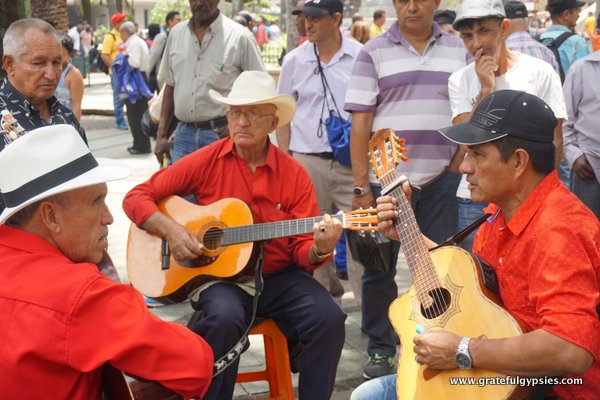Spanish Pronouns and the Verbs “To Be” Posted by sasha on Nov 8, 2017 in Spanish Grammar, Spanish Vocabulary
If you’re a beginner learner of Spanish, you’ll want to master the Spanish pronouns and the verbs “to be” right away. That’s right – there are two different verbs meaning “to be” in Spanish. One is for a permanent state, while the other is temporary. Learn more in this short video lesson.
Video
Follow along with the video to practice your pronunciation. The vocabulary is listed below, which you can copy/paste for further study:
Vocabulary
Spanish Pronouns
| yo | I |
| tú | you (familiar) |
| usted | you (formal) |
| él | he |
| ella | she |
| nosotros | we |
| ustedes | you (plural) |
| ellos | they (masculine) |
| ellas | they (feminine) |
*Note = In Spain, the word vosotros is used for you (plural) in a familiar way. I have been studying Spanish in Mexico and Colombia and have not been taught to use this word, as it’s not common in Latin America.
The Verb “Ser” (Permanent)
| yo soy | I am |
| tú eres | you are (familiar) |
| usted es | you are (formal) |
| él es | he is |
| ella es | she is |
| nosotros somos | we are |
| ustedes son | you are (plural) |
| ellos son | they are (masculine) |
| ellas son | they are (feminine) |
The Verb “Estar” (Temporary)
| yo estoy | I am |
| tú estás | you are (familiar) |
| usted está | you are (formal) |
| él está | he is |
| ella está | she is |
| nosotros estamos | we are |
| ustedes están | you are (plural) |
| ellos están | they are (masculine) |
| ellas están | they are (feminine) |
For now, just practice the pronouns combined with the two different verbs “to be.” In the next video lesson, we’ll look at some examples for each of them so you can start forming sentences on your own.

Build vocabulary, practice pronunciation, and more with Transparent Language Online. Available anytime, anywhere, on any device.





Comments:
Lisa:
for estar you are familiar – shouldn’t this be tu estas ?
(forgive lack of accents in typing this keyboard)
sasha:
@Lisa Yes thank you for catching that. It was correct in the video but I mixed it up in the written table. Went ahead and fixed it. Thanks again!
Enrica:
Thank you for the lesson! I have a question: you said that “vosotros” is the familiar way to say “you (plural)” in Spain, and I was wondering if “ustedes” is just formal as the singular “usted” or if it can be also used in a familiar situation as “vosotros” in Spain.
sasha:
@Enrica I really can’t speak for how to use it in Spain, as I’ve never been there. I’ve spent this year in Mexico, Colombia, and Ecuador, and have never once heard someone use the word “vosotros.” I had just received comments on previous posts asking about it, so I decided to include it as reference for those learning Spanish to visit Spain.